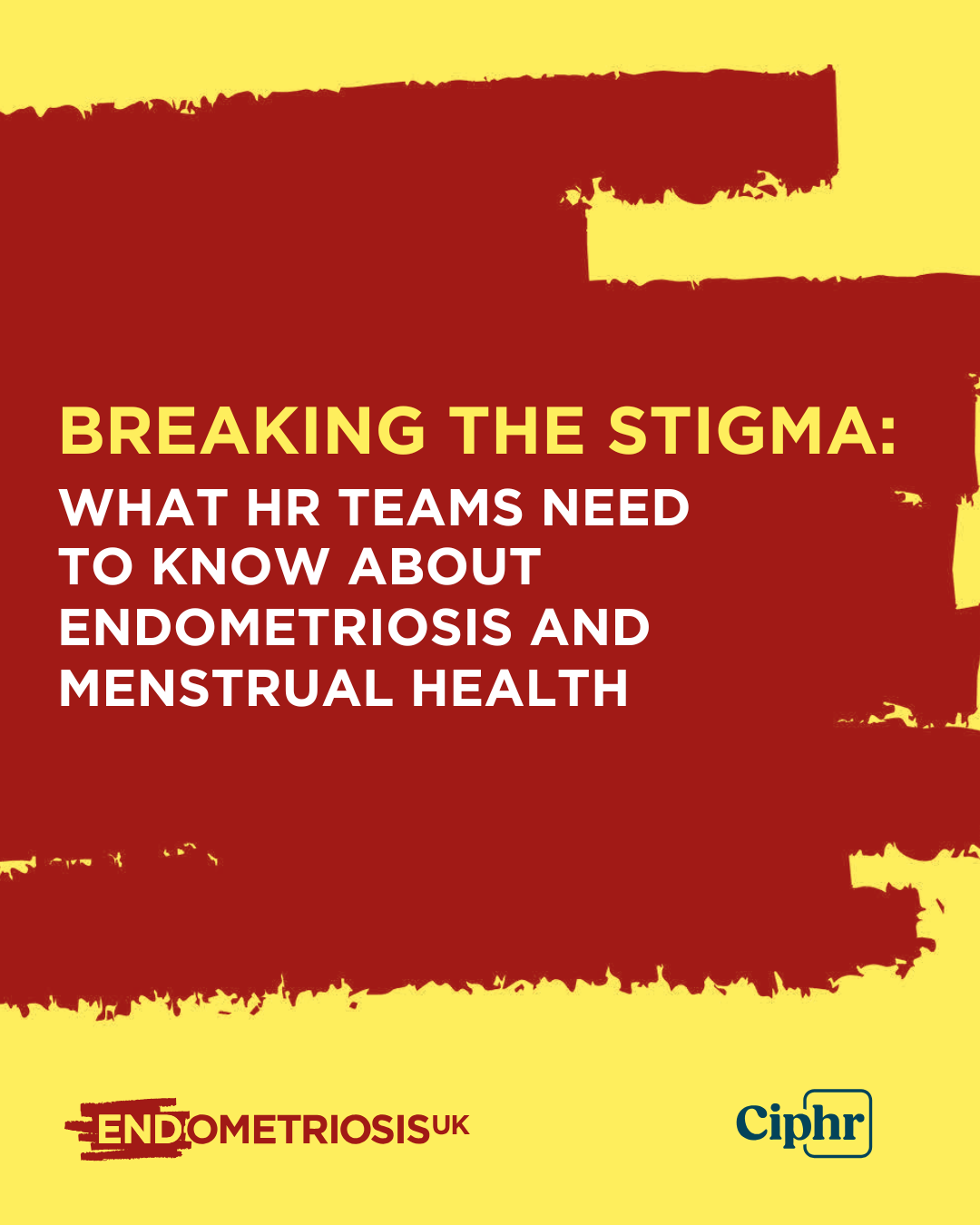A new survey of 121 HR professionals and leaders by Endometriosis UK and HR software provider Ciphr provides insights into challenges and opportunities for those with endometriosis in the workplace.
The study, commissioned as part of our Endometriosis Friendly Employer scheme, shows that many HR professionals worry that managers in their organisation do not have the right training and resources to provide support around endometriosis and other menstrual health topics.
The study, ‘Breaking the stigma: what HR teams need to know about endometriosis and menstrual health’, also shows that some HR professionals are concerned that managers, in particular at larger organisations, are not approachable about health matters in general.
It also shows that many employers do not provide free period products at work, and have inflexible uniform rules - which may make it harder for those experiencing symptoms like heavy periods and bloating to feel comfortable at work.
The report includes a number of ‘talking points’ – a range of practical suggestions of ways employers can help empower managers to create a supportive environment for those with endometriosis, and ensure their organisation approaches menstrual health with the same care and attention as any other health issue.
To coincide with the launch of the report, Endometriosis UK and Ciphr are encouraging employees, volunteers and supporters to share their experience of #EndometriosisAtWork on social media, if they feel comfortable doing so. Three such stories are shared in the report, including two from employees of Endometriosis Friendly Employers.
Julie Burns, Endometriosis Friendly Employer scheme manager at Endometriosis UK, says: “We know that there are many HR professionals already putting in place the right measures to enable those with endometriosis to feel valued, be productive and contribute to their organisation’s success – but as a charity we also hear stories of women and those assigned female at birth treated unfairly or without sympathy, forced to change careers or abandon their ambitions, because of the disease.
“We hope HR professionals recognise that providing support to the estimated 1.5m in the UK with endometriosis is in their interests. Doing so will not only enable that community to achieve their potential, but it sends a message to your wider team that they are valued and can expect support and reasonable adjustments.”
Claire Hawes, chief people and operations officer at Ciphr, says that employers should be troubled by many of the report’s findings. She comments: “It's concerning that these results reveal such a wide gap in organisational awareness and readiness to support employees living with endometriosis and other menstrual health conditions. When managers are perceived as unapproachable or ill-equipped to respond with empathy and understanding, organisations risk side-lining the needs of a significant part of their workforce.
“HR teams have a vital role to play in changing this. Managers must be empowered to support their people holistically; not just in terms of performance and KPIs, but in their health and wellbeing too. That means investing in training, implementing flexible policies, signposting resources, and fostering open, compassionate conversations about health.”
Sanchia Alasia is a trustee of Endometriosis UK, and a senior HR professional. She lives with endometriosis, having been diagnosed in 2010 after 15 years of symptoms. She comments: “My personal and professional experience shows me that a little bit of flexibility can go a really long way. Those with endometriosis need to know that if they have a flare-up or need to attend a medical appointment, that they can tell a manager and be believed and understood, rather than judged. That flexibility needs to be there both in the culture of an organisation, but also in the policies that line managers turn to. Ultimately, line managers need clarity, and all sorts of employees may need that flexibility at some time or another, regardless of whether they have endometriosis, another medical condition, or other particular circumstances impacting them.”


